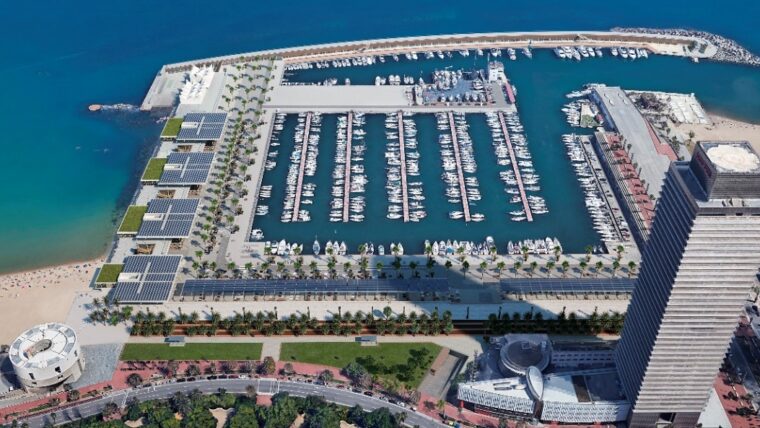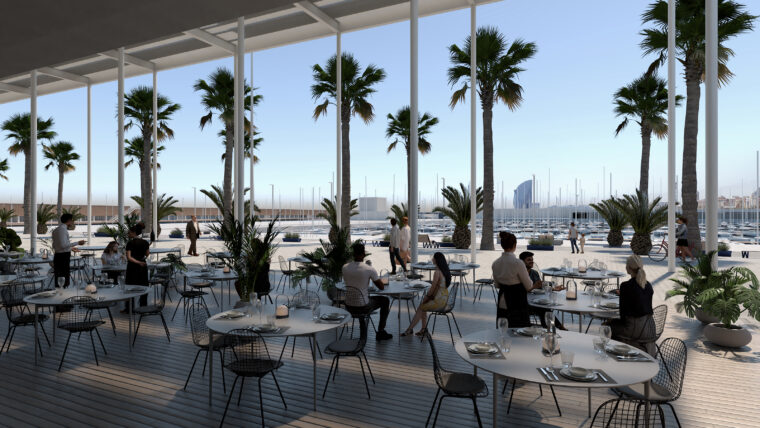A step forward in the Olympic Port’s transformation
The Government Committee has started to implement the new Special Urban Development Plan for the Olympic Port’s Layout and Uses, to turn the port into a space that is integrated into the city, better connected, a new powerhouse for the blue economy and food from the sea that will democratise access to maritime activities. The new special plan updates the one drafted in 2006.
A boost to the blue economy
Training, outreach and recreational water-sports activities are being promoted to open the Olympic Port to city residents. In addition, there will also be incentives to attract water-sport services entrepreneurs and enterprises and organisations that promote innovation, research and the circular economy in the area of blue sectors.
The plan provides for the construction of new access points to the Vila Olímpica neighbourhood and the beach as well as the creation of public space especially designed for taking walks along, recreation and doing sport. The new Access point from the Litoral ring road, the adaptation of the Moll de Mestral wharf’s premises and the urbanisation of the Shelter Dike are already at the construction stage, whereas the Sailing Centre’s renovation work is being put out to tender.
It also insists on the need for encouraging the presence of greenery and opting for renewable energies and waste management, among other measures, to combat climate change and strengthen the commitment to sustainability.
Gastronomic balcony
Gregal Moll wharf will concentrate the new restaurant and catering model on the Gastronomic Balcony, with restaurants and gourmet shops. Construction work on the space will start in January, boasting an investment of 15.9 million euros, and will finish in the summer of 2024 in preparation for the America’s Cup.
A dynamic port
The plan focuses on an area of 180,925 square metres, of which 103,561 square metres have been allocated to the port infrastructure’s land — including the Mestral, Marina, Gregal and Xaloc wharfs and the shelter dike— and 77,363 square metres to sheltered waters. In addition, it proposes a ceiling measuring a total of 32,700 square metres.
The City Council took over the management of the Olympic Port in 2020, through the public company Barcelona de Serveis Municipals (BSM).










